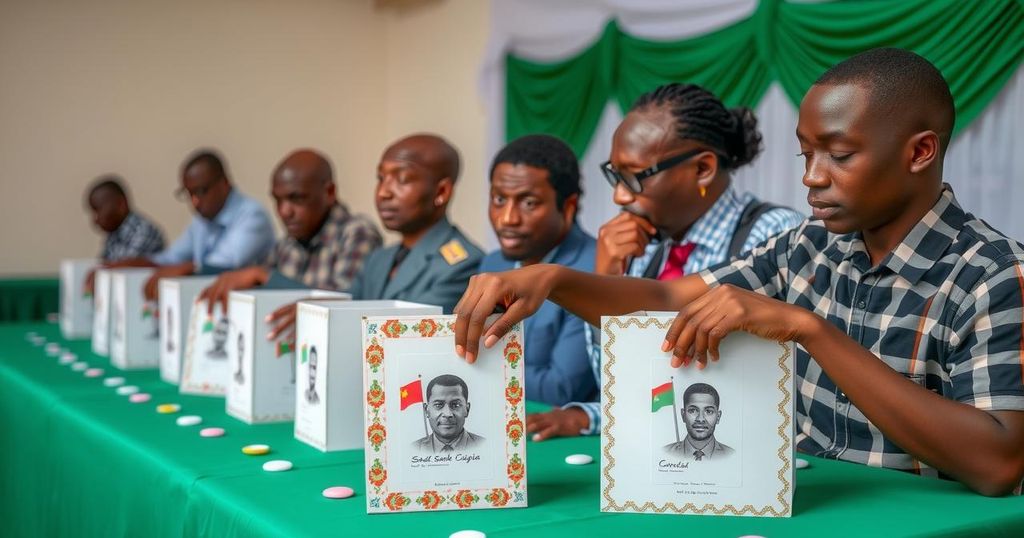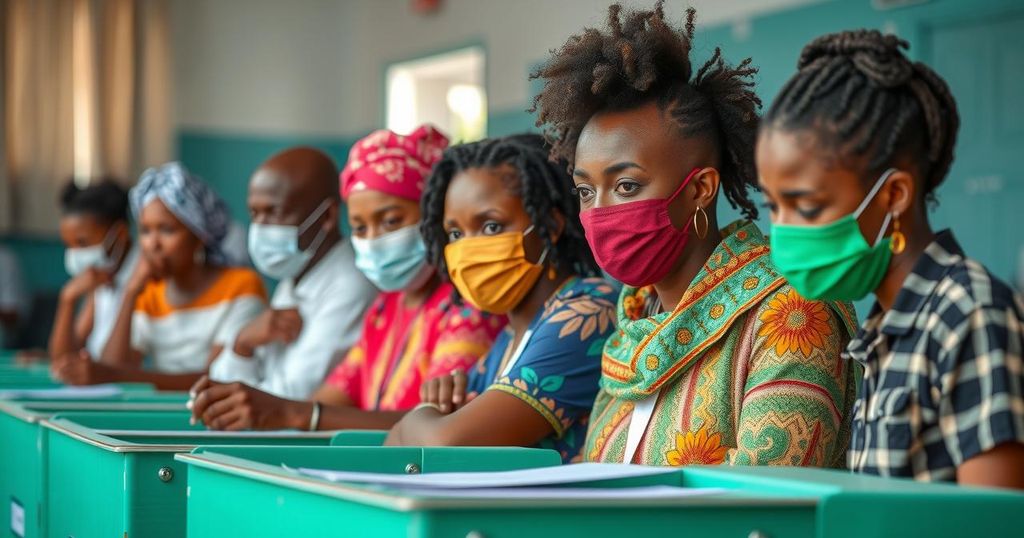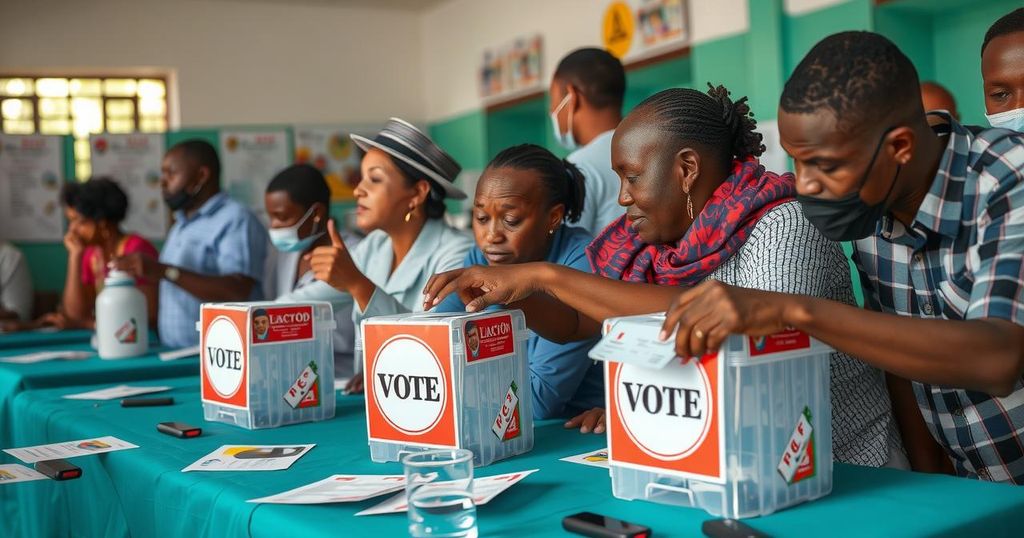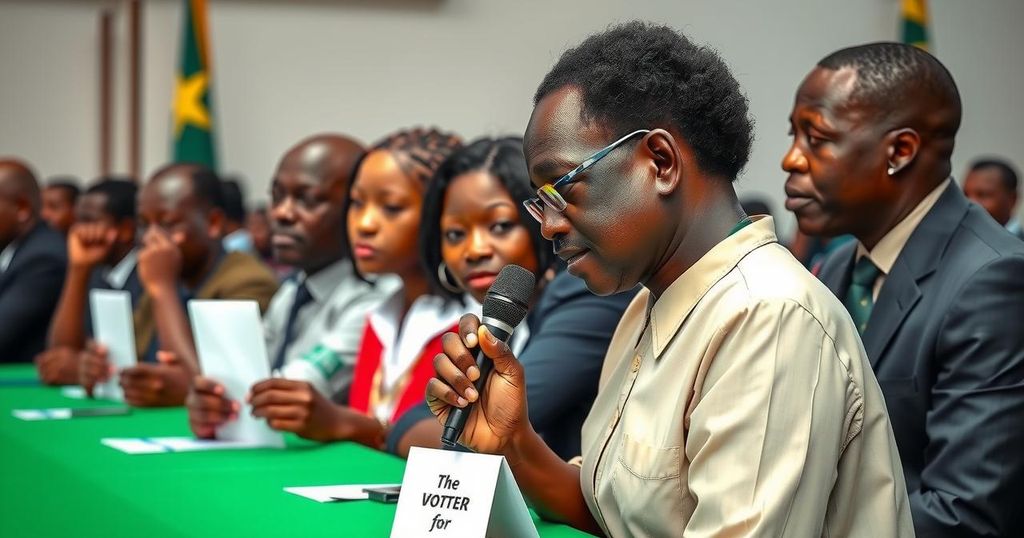World news
ABDALLAH SAMBI, AFRICA, AUSTRALIAN ASSOCIATED PRESS, AZALI ASSOUMANI, COMOROS, ELECTION FRAUD, GOVERNANCE, GOVERNMENT, HAMIDOU KARIHILA, HOPE OF THE COMOROS, INDIAN OCEAN, INDIAN OCEAN ARCHIPELAGO, JUWA, NO, NOUR EL - FATH, OPPOSITION, POLITICS, PRESIDENTIAL ELECTION, REUTERS, SUPREME COURT
Maya Ramirez
0 Comments
Voters in Comoros Cast Ballots in Controversial Parliamentary Elections
Voters in Comoros are electing members for a 33-seat parliament amidst allegations of prior electoral irregularities linked to President Azali Assoumani’s controversial leadership. Approximately 338,000 voters are registered, with the opposition calling for a boycott while others argue for participation to challenge the ruling party. Results are expected by Friday, with significant political implications ahead.
On Sunday, voters in the Comoros archipelago participated in parliamentary elections for the 33-seat legislature, following President Azali Assoumani’s controversial re-election last year. The ruling party officials refuted claims of electoral irregularities, which the opposition maintains marred the previous election. A total of approximately 338,000 registered voters were eligible to cast their ballots, with polling stations operating from early morning hours.
The last parliamentary elections occurred in January 2020, and around 100 candidates were approved by the Supreme Court to run in this election. Opposition figures have characterized Assoumani’s governance as increasingly authoritarian, raising suspicions regarding his intention to position his son, Nour El-Fath, for succession at the end of his term in 2029. Since seizing power through a coup in 1999, President Assoumani has secured three electoral victories.
In a notable development, Assoumani’s son received extensive powers in 2024, overseeing all governmental affairs. Some opposition factions, including the Juwa party led by former President Ahmed Abdallah Sambi—who was sentenced to life imprisonment in 2022—have called for a boycott of the elections. However, other groups have opted not to heed this recommendation, believing that their participation would expose systemic flaws and hasten the regime’s decline. Hamidou Karihila, representing the opposition group Hope of the Comoros, stated, “The Azali regime is weakened … by participating in these elections we are contributing to further exposing the flaws in its system and accelerating its inevitable fall.”
Election results are anticipated to be announced by Friday, with significant implications for the future political landscape of the Comoros.
The political landscape in the Comoros is shaped by a history of coups and allegations of electoral misconduct. President Azali Assoumani has been a dominant figure since 1999, having taken power through a coup and subsequently winning multiple elections amid accusations of authoritarianism. The recent parliamentary elections are pivotal, given the increased scrutiny from opposition parties and the societal context marked by calls for reform and transparency. The youth and opposition factions are particularly wary of Assoumani’s efforts to consolidate power, especially regarding familial succession plans.
The parliamentary elections in Comoros represent a critical juncture for the nation, revealing deep divisions between the ruling party and opposition factions. Accusations of electoral manipulation persist, echoing past grievances and illuminating the political tensions surrounding Assoumani’s long-standing leadership. As the country anticipates election results, the potential for significant shifts in governance remains a topic of national interest, underscoring the importance of participation and representation.
Original Source: www.stawelltimes.com.au




Post Comment